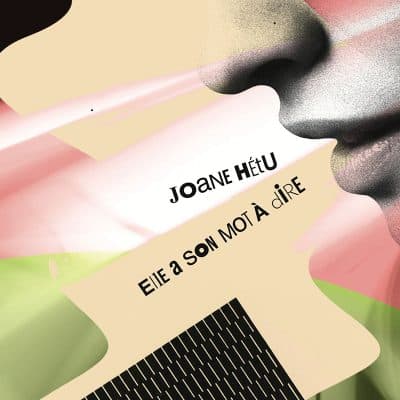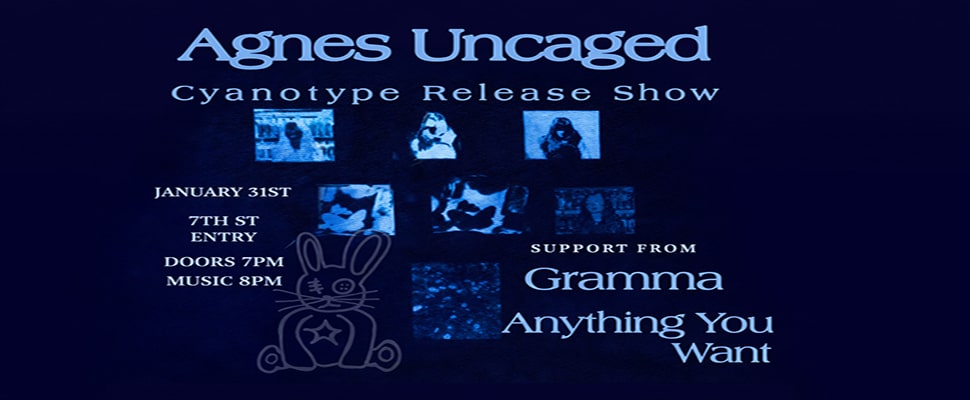Joane Hétu ELLE A SON MOT Á DIRE
 JOANE HÉTU
JOANE HÉTU
ELLE A SON MOT Á DIRE
Ambiances Magnétiques (AM282)
Joane Hétu, alto saxophone/conductor/composer/lyricist; Sarah Albu, voice; Emilie Fortin, trumpet; Julie Houle, tuba; Luzio Altobelli, accordion; Noam Bierstone, percussion; Michel F. Cộté, percussion/electronics.
Joane Hétu is a composer, saxophonist and vocalist who has been a pivotal figure within Quebec, Canada’s vibrant avant-garde, experimental music scene. The title of this album translates to “She has a say in the Matter.”
Hétu is joined on this album by Sarah Albu (another voice), Émilie Fortin on trumpet, Julie Houle playing tuba, Luzio Altobelli on accordion, Noam Bierstone and Michel F. Cộté on percussion with Cộté adding electronics to her musical repertoire, and all of the musicians mentioned sing and manipulate objects in addition to playing their primary instruments. The result of Joane Hétu’s musical genre is somewhat ethereal. Fair to say, it refuses categorization.
The group opens with a piece entitled, “Elle N’a Pas de mot” that translate to “She Has no Words.” It sounds like what I would imagine the universe to sound like. Mysterious humming, that hangs in space like clouds. An instrument that sounds like a flute, dances across the arrangement, produces a ringing in my ears that is pleasant and captivating. Her press package explains that ‘whirly tubes’ were used to create these soundscapes. These are ribbed hoses that are spun professionally above or beside the players.
The next composition features vocalist Sarah Albu to the forefront to interact with the percussionist. She presents a semi-operatic performance that is quite rhythmic, singing in a language other than English. I’m assuming it is French, since the album title and song titles are all in French. This arrangement is very percussive, even the vocals.
The next song titled “Elle n’est pas un Animal” translates to “She is not an animal.” There are several vocals used on this song, including male and female singers, vocal harmony and individual voices. Whistle sounds, spoken word and percussion creates a cacophony of moods. There is very little music during this experimental track.
A composition Joane Hétu calls “Un Ideal” uses voices once again with percussion to create a mood. Using a texture of voices with sharp instrumental punctuations, it almost feels like sound effects instead of a song. Then comes “Avoir le Motton,” a composition from 2001 that features Hétu’s saxophone intertwining with Emilie Fortin’s trumpet talents. Human gasps and coughs enter the production unexpectedly, including a somewhat grotesque vocal solo. It’s quite experimental.
This musical experience demands an acquired taste. It’s both experimental and avant-garde. Her original music explodes into the universe, blending feminist discourse, spoken word and phonetic delirium into her arrangements with unexpected and purposeful abandon.
Reviewed by Dee Dee McNeil
Buy Us a Cup of Coffee!
Join the movement in supporting Making a Scene, the premier independent resource for both emerging musicians and the dedicated fans who champion them.
We showcase this vibrant community that celebrates the raw talent and creative spirit driving the music industry forward. From insightful articles and in-depth interviews to exclusive content and insider tips, Making a Scene empowers artists to thrive and fans to discover their next favorite sound.
Together, let’s amplify the voices of independent musicians and forge unforgettable connections through the power of music
Make a one-time donation
Make a monthly donation
Make a yearly donation
Buy us a cup of Coffee!
Or enter a custom amount
Your contribution is appreciated.
Your contribution is appreciated.
Your contribution is appreciated.
DonateDonate monthlyDonate yearlyYou can donate directly through Paypal!
Subscribe to Our Newsletter
Order the New Book From Making a Scene
Breaking Chains – Navigating the Decentralized Music Industry
Breaking Chains is a groundbreaking guide for independent musicians ready to take control of their careers in the rapidly evolving world of decentralized music. From blockchain-powered royalties to NFTs, DAOs, and smart contracts, this book breaks down complex Web3 concepts into practical strategies that help artists earn more, connect directly with fans, and retain creative freedom. With real-world examples, platform recommendations, and step-by-step guidance, it empowers musicians to bypass traditional gatekeepers and build sustainable careers on their own terms.
More than just a tech manual, Breaking Chains explores the bigger picture—how decentralization can rebuild the music industry’s middle class, strengthen local economies, and transform fans into stakeholders in an artist’s journey. Whether you’re an emerging musician, a veteran indie artist, or a curious fan of the next music revolution, this book is your roadmap to the future of fair, transparent, and community-driven music.
Get your Limited Edition Signed and Numbered (Only 50 copies Available) Free Shipping Included
Discover more from Making A Scene!
Subscribe to get the latest posts sent to your email.









